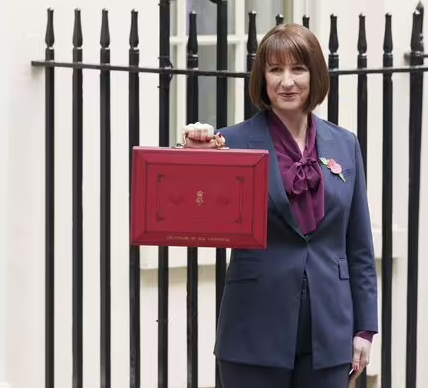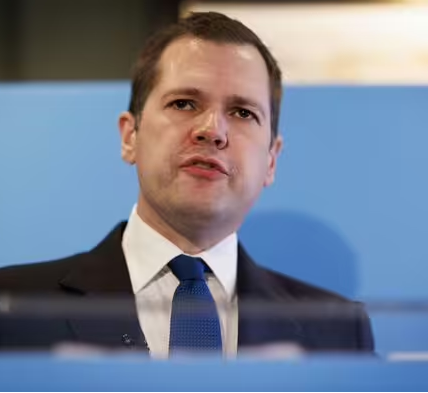British businessman and author Neil Record has exposed a “hidden” debt that the Government will have to pay back.

Rachel Reeves may be grappling with an even bigger budget black hole. (Image: Getty)
Rachel Reeves is sitting on a ticking time bomb of a “£100bn black hole” according to a top businessman.
The chancellor has been vocal about bemoaning a so-called £20bn black hole left behind by the previous Conservative government.
But, says businessman and author Neil Record, that’s small fry compared to an even bigger “hidden” debt that the new Government must grapple with that’s tied up in public sector pensions – to the tune of around £100bn – an issue he claims every previous Chancellor has also ignored.
He writes in the Telegraph: “You might be thinking ‘how can the Government possibly have £100bn a year of hidden borrowing?’. That is a huge amount of money, even in national accounts terms.

The government debt is to do with public sector pensions. (Image: Getty)
“You would be right – the last two years reported government borrowing was £123bn for 2022-23 and £122bn for 2023-24 – so hiding £100bn or so of additional borrowing is not small change.
“To put you out of your misery, the answer to this mystery is public sector pension costs.”
The author explains that this is the Government’s own employees’ pensions, which is made up of two elements – the first being money that the HM Treasury gets paid every year by its own public sector employees and employers.
In 2023-24, this was was £47.2bn and HM Treasury forecasts that it will be £53.1bn this year.
If the Government was a private employer, the law requires that this money would be invested in a separate fund to make sure that it is secure.
But the Government has exempted itself from these rules and puts all the money straight into its income pot.
Mr Record says this “sleight of hand” has made the cost of paying already retired pensioners look cheap but the reality is that the Government has borrowed the money from its own pension fund “which as a result has no money in it, just Treasury IOUs.”
As well as this there is the interest that this borrowing costs – which last year was £37bn.
Mr Record added: “So here we have our £100bn. On average over the past five years, the Government has borrowed, but not declared, £76.6bn + £39.8bn = £116.4bn per year.
“This is a mixture of promising pensions and spending the money received for them now, and the interest on all the cumulative borrowing from that exercise. Now that’s creative accounting on an industrial scale.”
The Chancellor was reportedly locked in negotiations with some ministers until last week as she sought £40 billion of tax rises and spending cuts ahead of the announcement on October 30.






